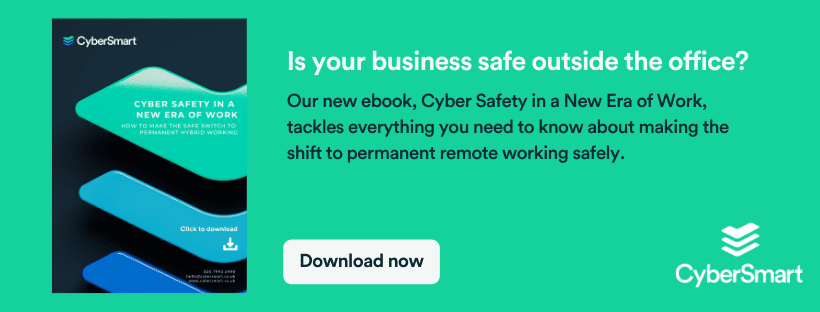Despite the common perception, VPNs aren’t just a tool for surfing the shadowy underbelly of the internet. A VPN is a vital defence against cyber threats for anyone working remotely. Here’s why your staff need one.
What is a VPN?
In simple terms, a VPN (or virtual private network) allows you to connect to business systems securely while using a public network. A ‘public’ network could be the free connection you get on public transport, the WiFI at your favourite cafe, or even your home internet router.
How does a VPN work?
The best way to think of a VPN is as a ‘tunnel’, used only by you, between your workplace and wherever you’re working from.
Rather than using the public network, a VPN routes your traffic through specialised servers and encrypts your data. When you connect to the internet via a VPN, all your data is sent through this encrypted tunnel. This has a couple of key advantages over using a public network:
Greater privacy
VPNs obscure your internet activity from your provider and everyone else. This effectively makes you ‘anonymous’ on the internet. Not only is this great for privacy, but it also means your IP address and location are invisible, making it much harder for cybercriminals to intercept confidential company data.
Improved safety
An encrypted tunnel is very, very difficult to hack. VPN Mentor has produced some interesting research on the subject and concludes that the only way hackers can break VPN encryption is either through a known weakness or by stealing the encryption key (more on encryption keys here).
Essentially, a VPN is a pretty sure-fire way to ensure your business devices aren’t vulnerable to attacks coming from public networks.
Why should your business use a VPN for remote working?
We highly recommend using a VPN if you have employees working remotely, but why? You may be wondering whether it’s really necessary. After all, won’t the existing security on employees’ devices protect them?
Unfortunately, this simply isn’t the case. If your employees are using public networks or their home router it’s likely to be far less secure than your office network. According to a report from BitSight, home office networks are 3.5 times more likely than corporate networks to be infected by malware.
There’s also the human element to all this. Research shows that many employees, whether consciously or not, engage in riskier behaviour when working from home. For example, sharing confidential files via email instead of the usual, safer channels. Without the added layer of security a VPN offers, this confidential data could easily fall into the wrong hands.
Why you need a VPN for hybrid working too
If you’re planning on adopting ‘hybrid working’ as the norm post-pandemic, VPNs will be essential to keeping your business safe.
Picture the scenario, one of your sales team has dropped into a coffee shop on the way back from an important meeting. They like the ambience of the place, so they decide to sit and fire off some emails and run through their sales deck while they sip a latte and munch on a croissant. To do this they need to connect to the cafe’s WiFi, an unsecured public network.
Seems innocent enough, but on this particular day, a hacker is targeting the customers of this coffee shop. They see that your salesperson is working using the cafe WiFI, and that’s all it takes. In a few seconds, the sales deck and confidential data have been stolen. Your business is facing a choice between a PR nightmare or a hefty bill to get it back.
How do you set up a VPN?
The first step is to pick a provider. There are hundreds of VPN providers out there each offers slight variations on the same service. Many businesses stick with the major providers such as NordVPN and ExpressVPN and with good reason, both regularly win tech magazine ‘Editors choice’ awards.
However, if you’re looking for the highest level of anonymity, smaller providers such as Mullvad VPN that require no payment or contact details could be the way to go. If in doubt, check out Tech Radar’s Best VPN Service 2021 list, it compares most of the major providers.
Once you’ve picked, setting up a VPN is relatively easy. The set-up process is almost universal among VPN providers so it shouldn’t matter which you choose. We won’t go into exactly how you do it here, but this guide from The Verge covers everything you need to know.
Want to know more about how to switch to hybrid or remote working safely? Download our guide, Cyber Safety in a New Era of Work here.

